By Alex Cameron
In a West Footscray industrial park, there are more than fifty identical storage warehouses. On Saturday, the park is mostly abandoned. It’s not really clear if you’re allowed in.
I stop outside warehouse 39, where there is a small gathering. I park next to a shipping container.
The roller door stands open. Inside, rows of industrial shelving stretch back twenty metres, each five or six metres high. They’re heaving with stationery, desks and tables, wheelchairs and scooters, motorised hospital beds and heart monitors. I see two green dentist’s chairs, shrink-wrapped.
At the door, a woman roasts green beans on a camp stove. She brings over the pan.
“Smell it,” she says.
It smells strong and delicious, burnt but floral; unmistakably coffee.
“Ethiopia is the home of coffee,” Ariam tells me. She begins to hand out a tray of filled cups, some adorned with diamond patterns of green, red and yellow, others with long faces gathered in rows. The coffee ceremony has started.
Ariam, and the rest of the crowd, are here for a celebration. She and her friends, a group of young Tigrayan-Australians, have finally achieved a long-held goal: they’ve filled an entire four-tonne shipping container to the brim with medical supplies. On Tuesday, it leaves for Ayder Hospital, Mekele.
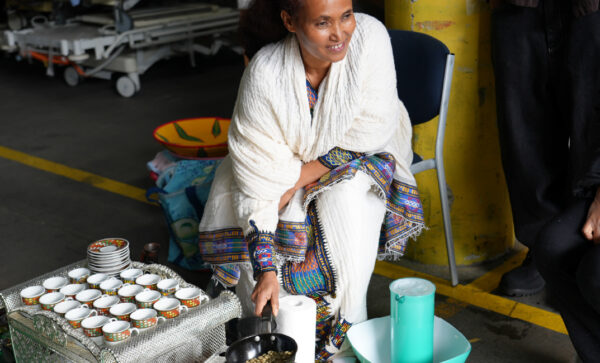
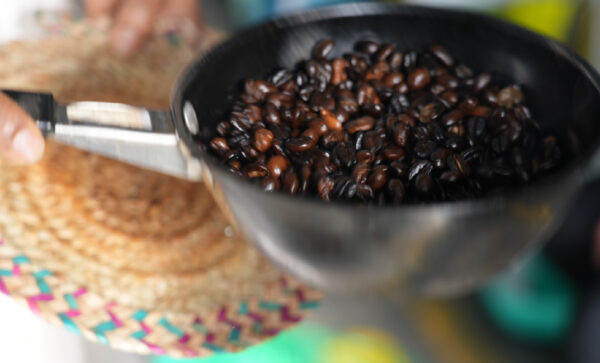
I’m not alone when I say I don’t know much about Tigray.
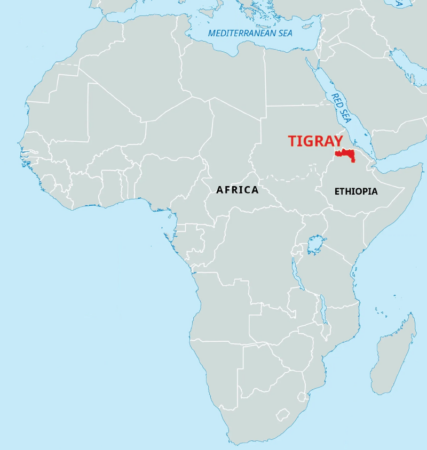
Ethiopia’s northernmost province, it is sometimes referred to as the cradle of Ethiopian civilisation. It borders Eritrea to the north and Sudan to the west. It’s a land of epic proportions, biblical in its scope, a regal passage of towering volcanic mountains and sheer limestone cliffs.
In 2020, Tigray held scheduled elections. This wouldn’t have usually been an issue, except that the central government of Ethiopia had already postponed the planned elections, using COVID-19 as an excuse.
As well as extending the term of Prime Minister Abiy Ahmed, it also lengthened those of lawmakers and the executive branch beyond constitutional limits. The central government slashed funding to Tigray as a punishment for carrying out their own vote, which was enough to light the fuse of conflict.
In 2019, Ahmed won a Nobel Peace Prize for resolving Ethiopia’s border conflict with Eritrea. One year later, he was about to oversee one of the bloodiest civil wars Africa has ever seen.
For members of the Australia Tigray Alliance (ATA), the war was met with cold silence, both from within Tigray itself and from the Australian and international community. As the Western world swelled to support victims of Russian aggression in Ukraine, and protesters took to the streets in the name of oppressed Palestinians in Gaza, victims of the Tigray War went forgotten and unknown.
Fortuna Berhane lived in Axum, in the region’s north, until she was nine years old. In November 2020, in one of the earliest atrocities of the Tigray War, 800 people in her hometown were massacred by Eritrean soldiers. Now chair of the ATA, through her soft-spoken demeanour, frustration and defiance are clear.
“No human suffering anywhere is more or less than the other, but it is difficult to get your head around how little is being done for Tigray,” Fortuna tells me. “It’s unfathomable to me that human suffering of that scale can be ignored for multiple years, no matter who the people are.”
When I try to talk about the military, alliances or fault, Fortuna is unmoved. She makes it clear that the ATA is not focused on the geopolitics of war, but squarely on the true victims, the civilians trapped within the horrific conflict, the effects of which are felt to this day.
“During the war we couldn’t hear from our family. Those in our family who did pass during the war we didn’t know about it for extended periods of time. It’s obviously very painful to realise that you’ve been going about your life without knowing that your grandma has passed away. It’s very sad and bizzare.”
Saron Berhane says that the idea to send medical supplies came from an inability to directly affect the ongoing war, so focus was shifted to humanitarian aid. As a biomedical engineer and project lead of the ATA’s Ayder Hospital project, part of her job was knowing what medical equipment was most needed in Tigray – and where to get it.
Included in the shipment was “a bunch of dialysis machines, a bunch of hospital beds donated by a hospital in regional Victoria, heart monitors, ventilators, some really essential consumables like surgical drapes, IV lines, catheters, things that are in dire need over there and will make a real difference in the operations of a hospital.” In many cases, usable but outdated hospital equipment has been saved from becoming landfill.
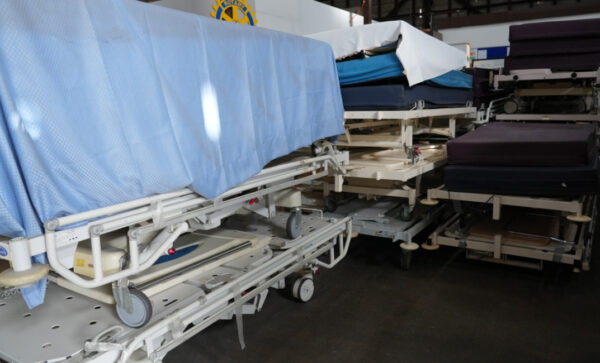
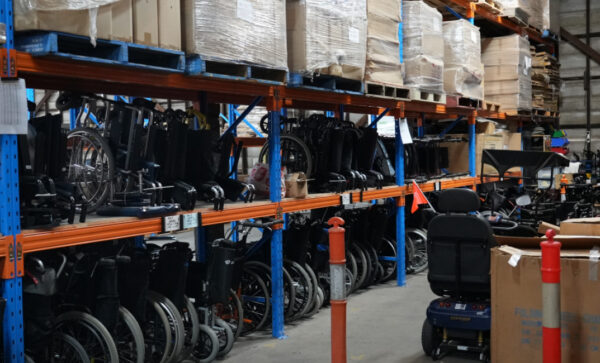
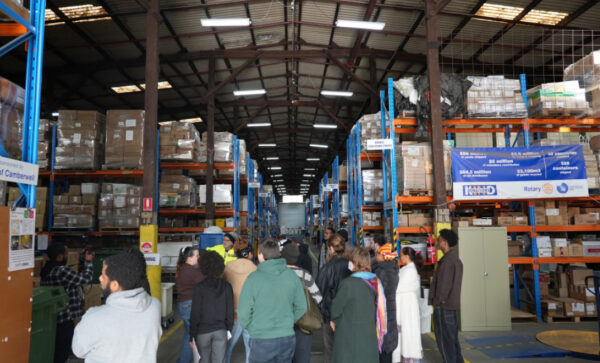
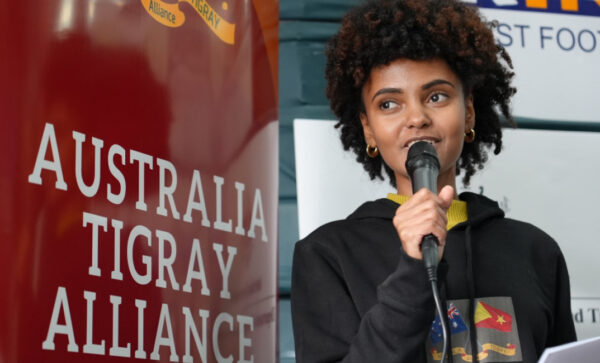
Ayder Hospital, the largest in Tigray and second largest in all of Ethiopia, had its capacities drastically reduced as the severity of the war intensified.
“They had run out of the most basic medical equipment, consumables … they were having to reuse single-use items,” Saron says. “They were chopping up old blankets and using them as wound dressings.”
As well as struggling to treat the injuries that inevitably arise from armed conflict, the hospital also lost much of its regular functionality. Damaged equipment, medical professionals fleeing for their lives and sheer lack of resources meant that the hospital functioned at a fraction of its previous capacity.
“In early 2022, sixty patients with kidney disease and diabetes died due to a lack of hemodialysis fluids and dialysis machines. That is preventable death,” Saron says. Towards the end of our discussion, her eyes well with tears, grief pushing hard through the relentlessly positive front she has, for hours, been presenting to community members, media personnel and a visiting politician.
Though advertised as a ‘container packing’ event, much of the actual packing is finished by the time the crowd arrives.
Possibly for liability purposes, possibly to retain complete control (ATA secretary Ariam Merid tells me that if a single piece of equipment not on the dispatch form goes into the container, the whole shipment could be rejected) the packing was completed ahead of time by ATA members.
Tim Watts, the Assistant Minister for Foreign Affairs, arrives to make a speech and load a few boxes. He has just secured $20,000 of funding for the group to put towards its next project.
“One of the great ironies of being a member of Parliament is that you find, very often the things that we value most in our community, the things that make us feel the greatest sense of pride only exist because of people doing them not for money, but for love,” he says in an unexpectedly heartfelt address.
It’s somewhat difficult to reconcile this man, who appears genuinely invested and moved by the actions of the ATA, with the wider government’s abject lack of attention towards the atrocities in Tigray – and indeed most of Africa. It could be that the government wishes that more people would do things ‘for love’ – especially if that means that Parliament needs to provide them less funding.
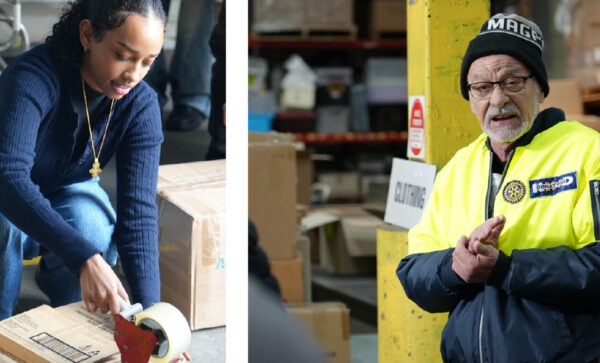
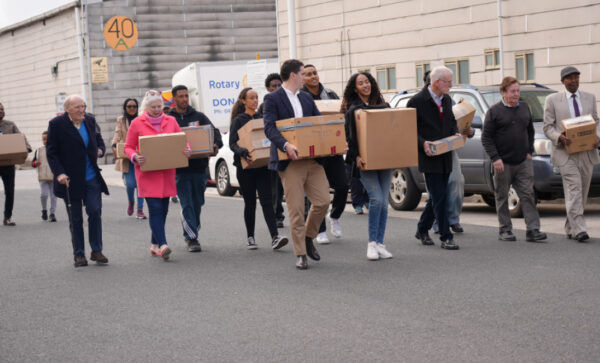
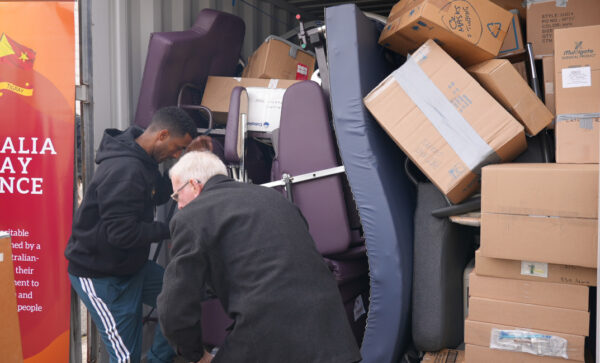
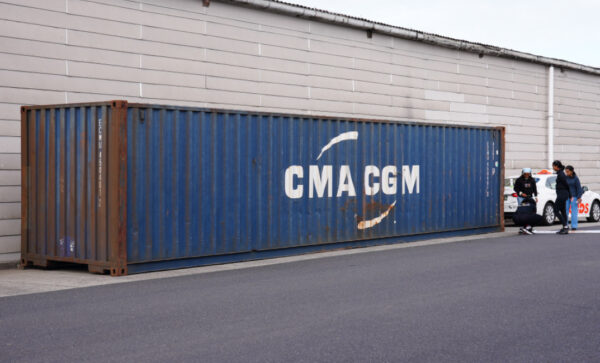
“There’s a level of exhaustion,” Ariam tells me, “there is no wider exposure, we’re not really getting a lot of government assistance, the wider Australian population doesn’t know about it, let alone the international community.”
Upon hearing of the ATA’s goal, I remember thinking “Is it really that simple? Surely providing aid is more complicated than filling a container.” Having watched the last few boxes of consumables get thrown in towards the back of the giant metal container, I can tell you that it really is that simple, especially when you’ve been forced to do everything for yourselves, largely without the support of the wider community or government.
“You get a level of helplessness, after working on it for multiple years and not necessarily seeing any response from anybody else,” Ariam says, “especially having seen how other conflicts around the world have garnered attention for their people and seen huge financial investment.”
“You start questioning why the lives of your people don’t matter as much.”
Ultimately, it’s a day of celebration. Before the container is sealed, a picture is taken of the ATA members whose hard work and dedication has finally come to an end, at least for this project. A photographer asks for a ‘celebration shot’ and there is genuine happiness on the team’s faces, and undeniable fatigue.
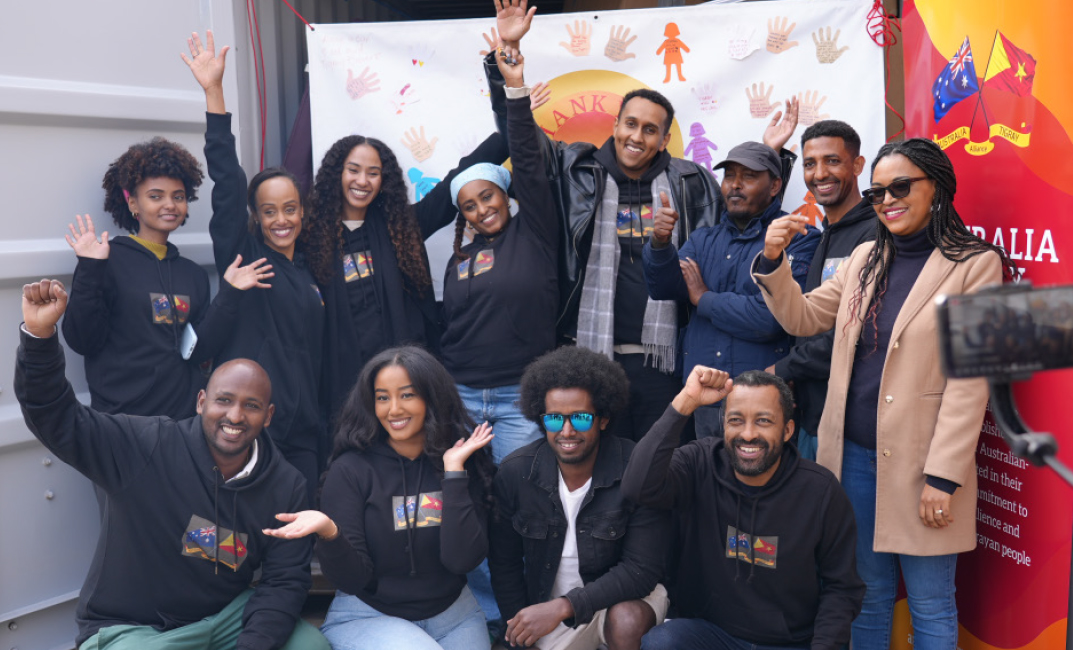
A few days later, the container began its 12,000 km journey to the Port of Djibouti. From there, it’s nearly 700 km to Ayder Hospital in Mekele. There will be dangers on the way, and there is a risk that government or military forces will delay or reject the shipment for political reasons.
But for now, the Australia Tigray Alliance has done all they can.
Jama Fara, chairman of international services for Footscray Rotary Club, tells the gathering: “I’m not excited yet. I will be excited when it reaches the Ayder Hospital in Mekele.” Ariam and others have told me that Rotary’s Donations in Kind (DIK) project was a vital partner in achieving their goal. On August 10, West Footscray DIK will celebrate the shipping of their 700th container.
“The one thing that I’ve noticed is obviously that the hard yards are done by community members,” Ariam says. “Even if it takes quite a while, each project is important and our drive is not going to get any lower.”
In June the New Lines Institute released a report stating that there is enough independent evidence to conclude that crimes against humanity, including genocide, occurred in Tigray over the course of the conflict. Maybe now the plight of the Tigrayan community can finally be treated with the seriousness it deserves.
If the abject lack of international coverage is anything to go by, however, it might sadly be left up to community groups like the ATA to load up medical supplies with their own hands and put them on a ship.

